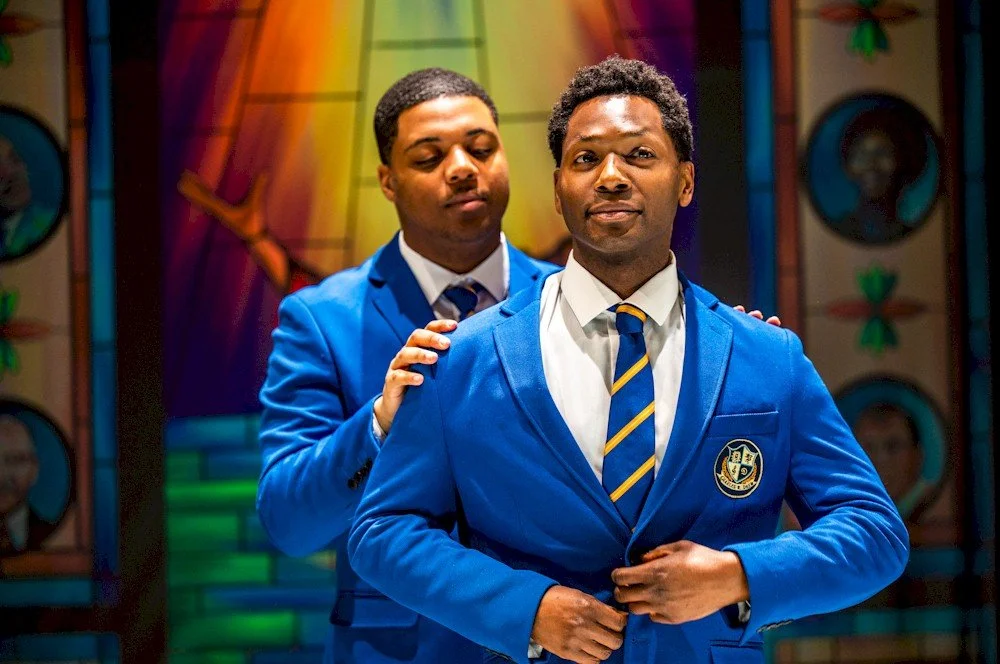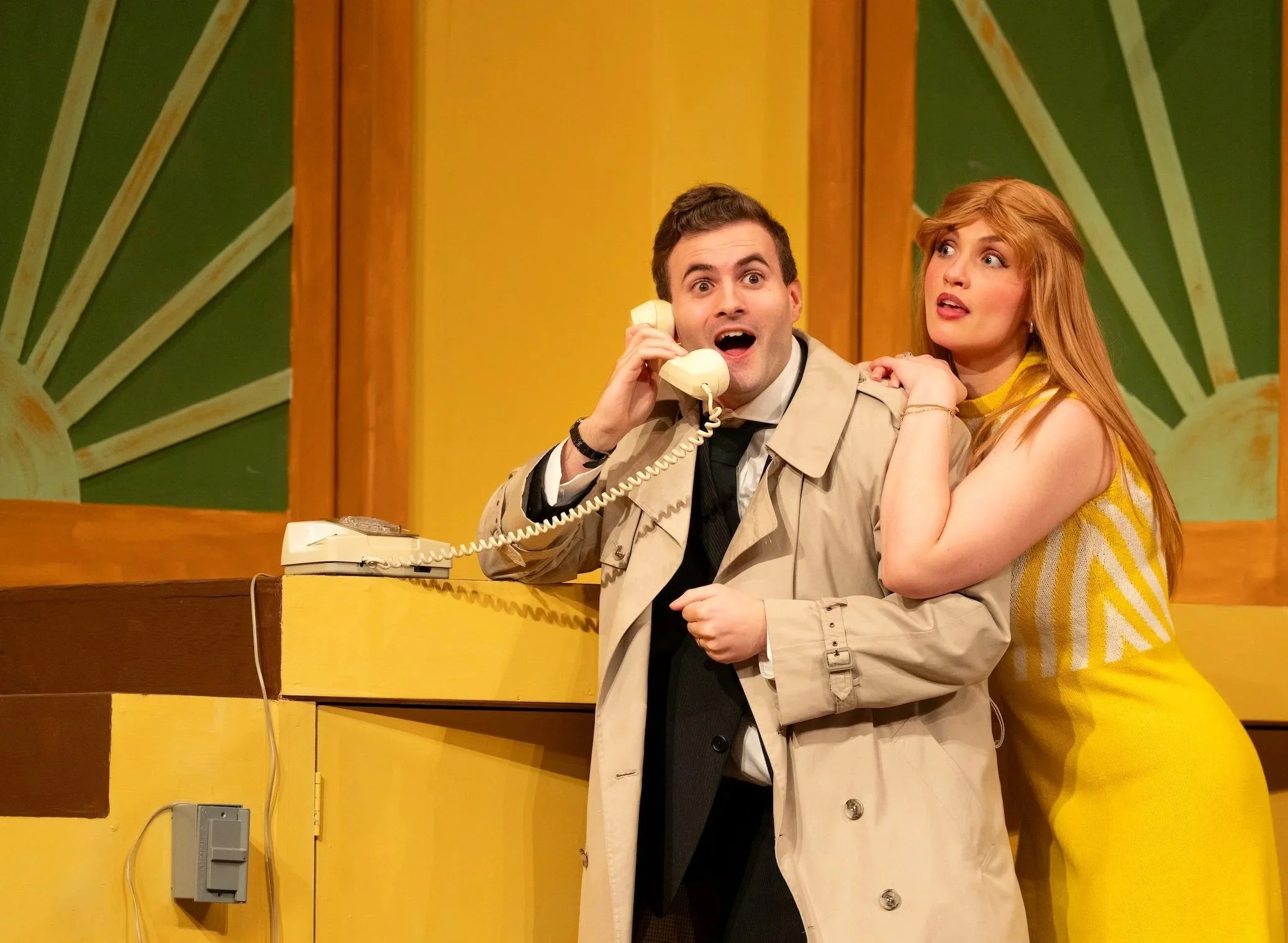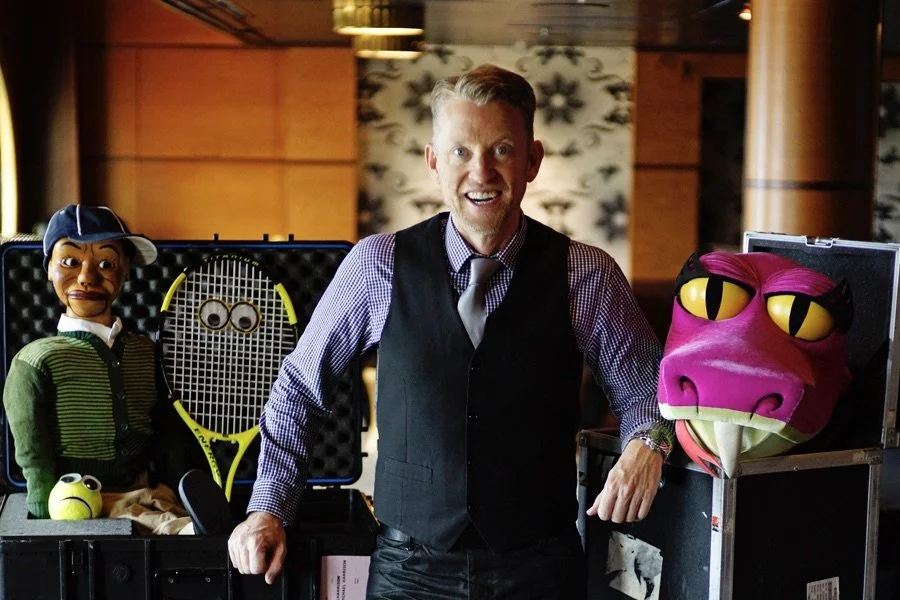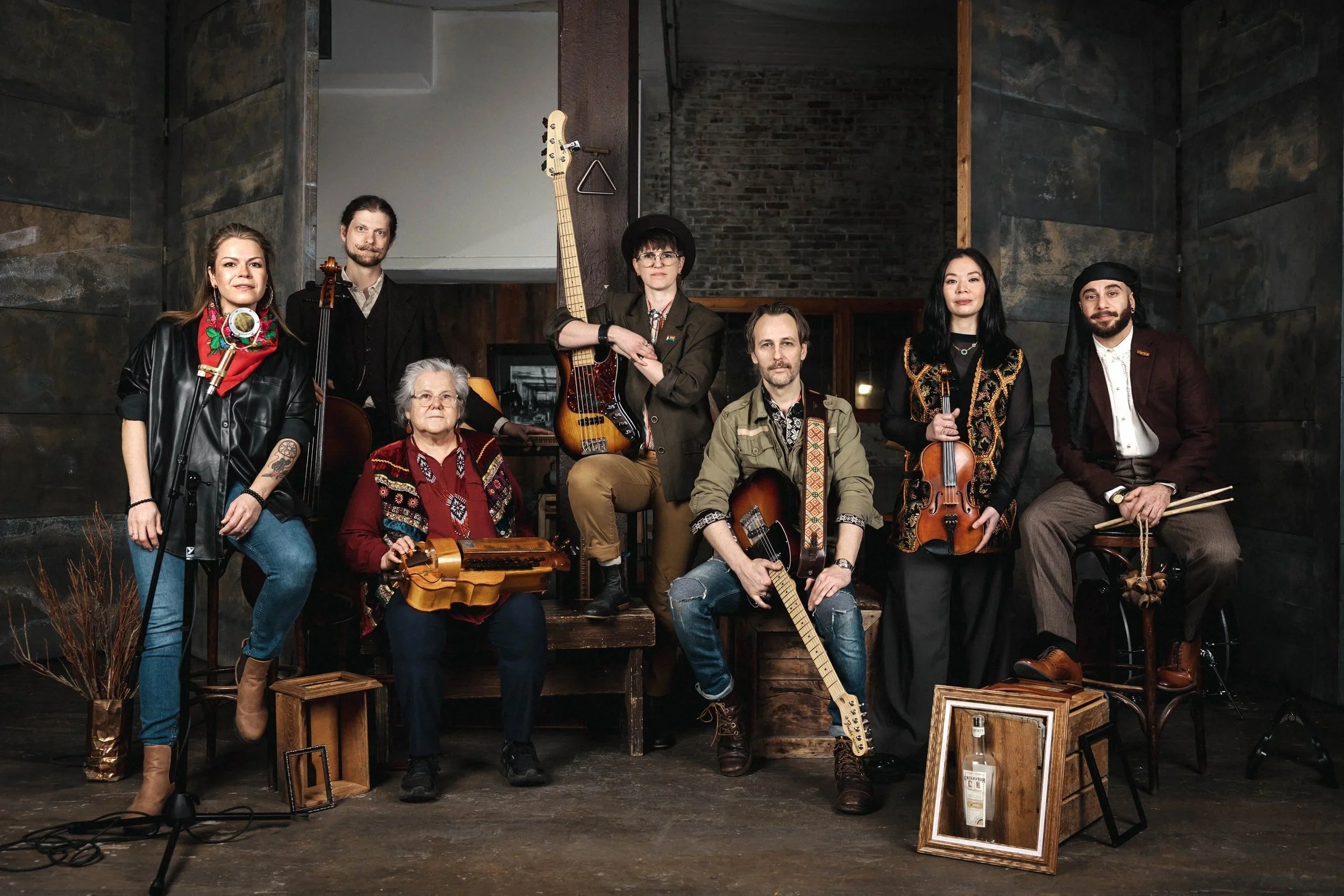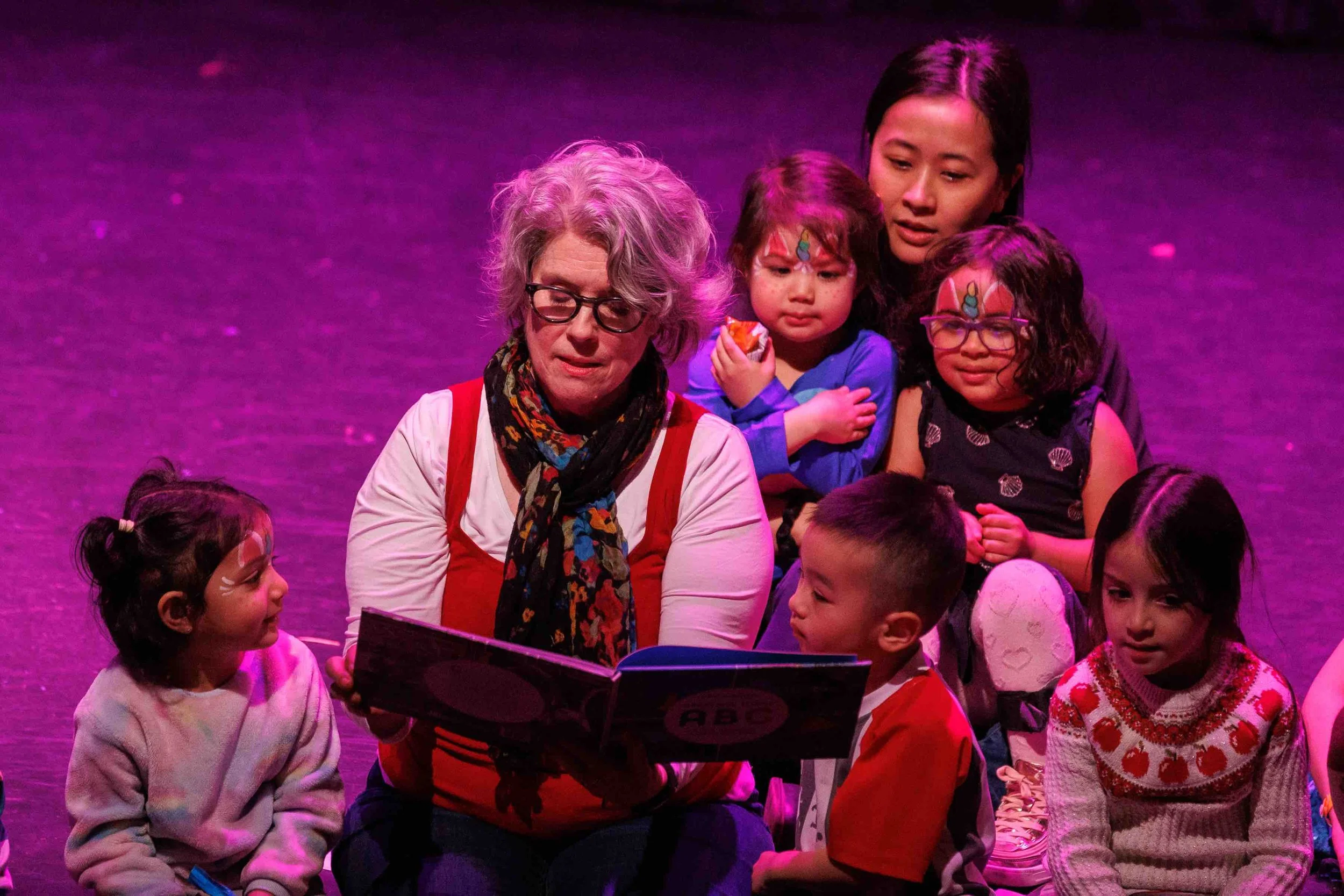Theatre review: Powerful performances and music as Choir Boy examines how society shapes young lives
Tarell Alvin McCraney’s compelling, boys’-school-set play poses important questions
Savion Roach and Andrew Broderick in Choir Boy. Photo by Dahlia Katz
The Arts Club Theatre Company presents Choir Boy at the Stanley Industrial Alliance Stage until February 25, in a coproduction with Canadian Stage
“WOULD YOU RATHER be respected or feared?” This is a question that’s repeatedly asked by Pharus, a gay teen at a Black all-boys boarding school in Choir Boy, a compelling play by Tarell Alvin McCraney. The question is one of many asked throughout the show that not only drive the plot but stay with audiences long after the final blackout, in this thought-provoking story that critically examines societal authority and the power it has in shaping the course of young lives.
In Choir Boy, we follow Pharus throughout his senior year at Charles R. Drew Prep School for Boys. At the opening of the show, Pharus has earned what he’s always dreamed of—being the lead in the school’s renowned choir. As opposed to a rise-to-success story, we see him at the top and having to hang on—a feat that we soon learn isn’t easy. The show takes place in modern times, a time when homophobia is frowned upon. But when we see the challenges Pharus faces, and who’s ready to take him down, it’s clear that not everyone is on an equal playing field.
Andrew Broderick portrays Pharus with a brilliant performance that features phenomenal singing and calculated characterization. From the start, when Pharus delivers the school’s annual commencement, Broderick’s vocals are exquisite in musicality, tone, and in how he colours phrases—there’s meaning behind every note. But as soon as the dialogue begins between him and Headmaster Marrow, there’s a clear dichotomy between the maturity in Pharus’s singing and the persona he presents, which is surprisingly hyper, juvenile, and at times downright catty—tactics that he uses to shield himself.
As he’s already “out”, and for the most part, it seems school authorities and students are fine(ish) with it. But you start to wonder—especially in this day age—why is Pharus constantly guarding himself and from whom? Broderick answers this question by peeling back layers throughout the show, until we finally get the deeper answers, and he’s left unshielded and exposed in the show’s powerful final moments.
Scott Bellis’s performance as Mr. Pendleton brings the essential contrasts of levity and darkness to the show. His seemingly scattered, kooky persona as one of the school’s teachers, tasked with challenging the kids to think critically, is a characterization seen in many a coming-of-age boarding-school film—say, Robin Williams’s character is Dead Poets Society. But Bellis also brings a darker wisdom to the role. At one point, one of the students makes derogatory statements against both gays and Black people. When Bellis responds by saying, “I’ve lost enough friends because of that word”, without acknowledging which word he’s referring to, the knowingness and suppressed emotion Bellis expresses is haunting.
Savion Roach brings sensitivity and warmth to his role of Anthony, Pharus’s roommate, and offers a great mix of charisma, tenderness, and maturity, which in one poignant scene allows Pharus to completely surrender himself to open up to Anthony. The way Roach’s Anthony responds is wonderfully touching. Kwaku Okyere plays Pharus’s hostile schoolmate Bobby with passion – everything he does, be it the harsh words he spews or the conviction with which he delivers his vocals and choreography, accentuates Bobby’s vindictive thoughts and behaviour. But near the end of the show, the complexity of his emotions in a vocal solo reveals new, deeper layers of his identity and makes us question how much of his persona is really him and how much is learned behaviour, and expectations around masculinity, from adult society.
As another of Pharus’s classmates, David, Anton May takes the lead in one of the first big numbers in the show and really rocks the house with his fiery delivery. Like Broderick, May’s portrayal is strategic in that his true character is gradually revealed throughout the play. What sets May’s part apart from the others is that everyone else, whether they like it or not, grows throughout the story—but David falls more and more into his own world, and May performs this frighteningly.
Clarence “CJ” Jura brings delightful comic relief as Bobby’s best friend, Junior, and his vocals have a beautiful resonance. Last seen as Lola in Kinky Boots, Stewart Adam McKensy returns to Arts Club in a vastly different role, this time playing Headmaster Marrow, a man conflicted between traditional authoritative guidance and exercising compassion. McKensy’s turning point is his solo, “I’ve Been in the Storm Too Long”, delivered with sincere emotion.
Under Mike Payette’s direction, scenes move along with great rhythm. Rachel Forbes’s multilevel set, along with Sophie Tang’s lighting cues and effects, allow us to quickly move to different locations throughout the school, such as classrooms, dorm rooms, and the shower. There’s great inventiveness in Forbes’s shower set, which allows the scenes to be delivered believably, without having to show nudity.
Music is central to Choir Boy in a unique way. The songs are a collection of gospel hymns that, as composer-arranger-musical director Floydd Ricketts noted in the show program, come with no pre-existing score. Ricketts, co-musical director Dawn Pemberton and the cast have collaborated in finding inventive ways to deliver the hymns so that they move the story forward, stay true to the gospel songs’ messages, and engage the audience. As all songs are delivered a capella, the cast frequently adds percussive sounds, often with the help of Natasha Powell’s movement direction, to bring the songs to life—to astonishing effect. The music is delivered so powerfully, that it’s easy to forget it’s performed without accompaniment. It helps that the cast are gifted singers, but even still, the fact that they seamlessly find their opening notes with ease, expertly navigating key and rhythm transitions, is superior work.
Choir Boy presents a unique approach to the common theme of upholding traditions versus embracing change. It’s demonstrated here in different ways—debates over hymns, and school traditions and policies—and as noted by Mr. Pendleton, throughout the years, it seems the results are always the same. Choir Boy is compelling for these reasons, as well as its gripping ending, which, while wrapping up this chapter in Pharus’s life, poses many more questions. Add to that, it’s not until the end that you realize the magnitude of Pharus’s original question, “Would you rather be respected or feared?” and better understand the scope of what this means.


